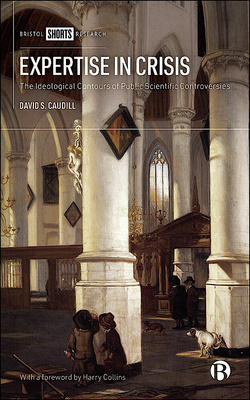Throughout the COVID-19 pandemic, public scientific knowledge in the US concerning masks and vaccines was often politicised and disconnected from the collective views of most scientists in the medical field.
The so-called ‘red Covid’ phenomenon, with more deaths in red (Republican majority) states and fewer in blue (Democrat) states, confirmed that vaccine scepticism reflected a partisan divide. This reality persists but should be distinguished from genuine concerns on the part of medical professionals.
Resistance to vaccination continues to be problematic in the US. One could hope that the solution to distrust of vaccine science might be in the field of law – courts, for example, could approve vaccine mandates. However, it is precisely in US courts of law that science is nowadays politicised. One federal appeals court recently blocked President Biden from enforcing his requirement of COVID-19 vaccines for government-contract workers, who represent a quarter of the US workforce, on the basis that he lacked the authority to do so. Another federal appeals court approved the mandate, but the vaccine mandate was blocked in 13 Republican-led states. Another example of politicised science in the courts is the recent decision by a US court to remove an abortion drug, Mifepristone, from the market on the basis of testimony that the Federal Drug Administration had not adequately reviewed the scientific evidence of its safety risks. This has been seen as an attempt to reduce abortions by a judge known for his anti-abortion views, even though Mifepristone has been rigorously tested and is safer than many other approved drugs.
If legal institutions cannot break through the distrust of consensus science, perhaps pronouncements from scientific institutions can? Not really. Resistance to governmental scientists’ mask-wearing directives reflect the same politicisation of science in the US. For example, in June 2022, Rochelle Walensky, the director of the US Centers for Disease Control (CDC), testified before Congress to confirm that the CDC would continue to recommend masks in schools, but only in communities with high rates of COVID-19 infection. That sounds reasonable, but Walensky then made the mistake of saying that masking guidance for children does not ‘really change with time’. The reaction from a Republican congresswoman was swift and predictable – why not use evidence to update guidance, for example the Cochrane Library review’s finding that mask-wearing makes little difference? Walensky challenged the accuracy of that particular study, but what the congresswoman was suggesting was that the CDC was not following the best science. After Walensky’s testimony the CDC was accused on Twitter of relying on a ‘bogus study’ co-authored by someone without a doctorate, while other tweets claimed an overreach of governmental power and a failure to follow real science.
I am encouraged that these Republicans were actually arguing about science: about what the consensus really is among qualified scientists. It is too easy to dismiss anti-vaxxers and anti-maskers as ‘anti-science’. The congressional debate did not actually reflect an anti-science ideology on the part of conservative lawmakers, but rather disagreements about what the science was saying. Mainstream scientists need to acknowledge that some genuine scientific controversies arose during the pandemic: science said a lot of different things.
This difference of opinion can be seen in numerous examples, including around the side effects of Paxlovid, an antiviral therapy consisting of two medications to treat COVID-19 infections. Most researchers herald the success of Paxlovid in reducing hospitalisations and deaths, believing that its benefits outweigh the risks, but much of the supply sits unused on shelves, because the physicians themselves have real concerns about its side effects, about drug-to-drug interactions and about so-called ‘rebound’ symptoms after symptoms subside. One cannot accuse overly cautious physicians of being anti-scientific.
If the institutions of law and pronouncements from government scientists cannot increase trust in consensus science, what can?
As social psychologist Mathew Marques from La Trobe University persuasively argues, communicating facts or telling people they are wrong won’t likely work. There needs to be a certain level of humility regarding the findings of research scientists, which may need revisions or retractions, and room for genuine scientific controversies. The divide is often not between the scientifically minded and anti-scientists, but between communities of believers. Convincing someone from a different community of the correctness of one’s views requires a willingness to engage with and understand those who hold opposing views.
David S. Caudill is Professor and Goldberg Family Chair at Villanova University
 Expertise in Crisis by David S. Caudill is available on the Bristol University Press website. Order here for £40.00. (Currently £20 in our summer sale.)
Expertise in Crisis by David S. Caudill is available on the Bristol University Press website. Order here for £40.00. (Currently £20 in our summer sale.)
Bristol University Press/Policy Press newsletter subscribers receive a 25% discount – sign up here.
Follow Transforming Society so we can let you know when new articles publish.
The views and opinions expressed on this blog site are solely those of the original blog post authors and other contributors. These views and opinions do not necessarily represent those of the Bristol University Press and/or any/all contributors to this site.
Image credit: the blowup via Unsplash


